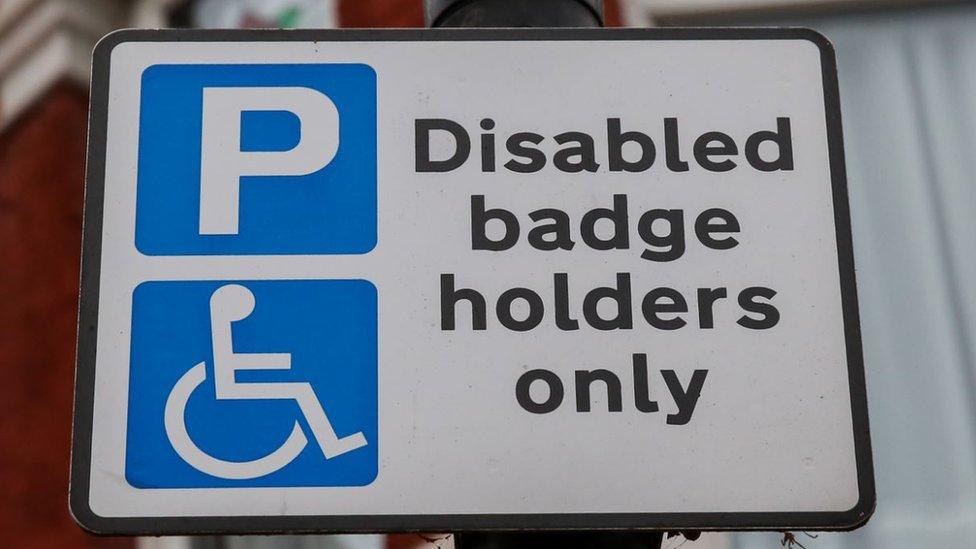Anger as York blue badge parking ban made permanent
- Published
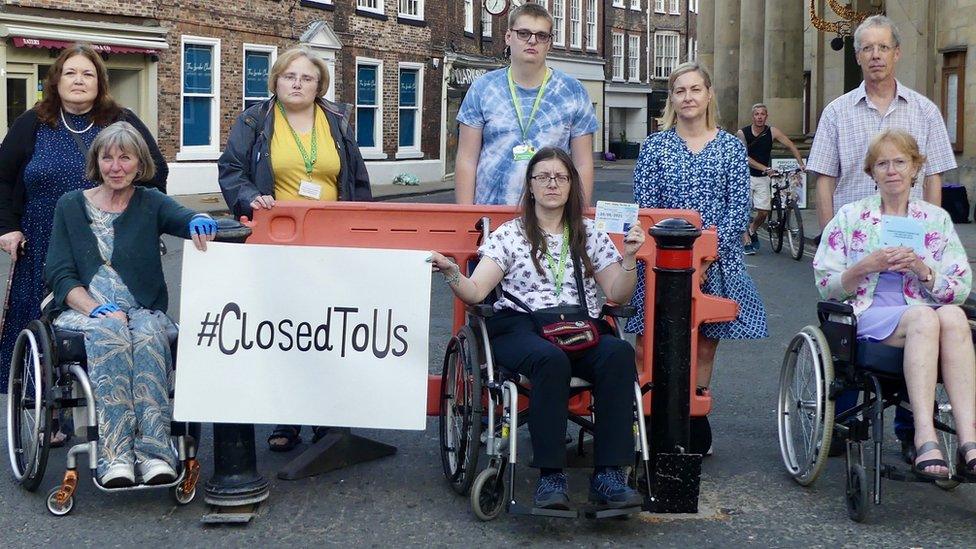
Campaigners have already started a crowdfunder to pay for legal action
Disability rights campaigners hope to mount a legal challenge against a ban on blue badge parking in a city centre.
Councillors in York voted unanimously to permanently prevent disabled parking in pedestrianised areas to allow anti-terror defences to be installed.
The decision angered those affected, who said they had been made to feel like "second-class citizens".
York Accessibility Action group has launched a crowdfunding campaign as it plans legal action.
A total parking ban on York's narrow footstreets was brought in during the pandemic to better allow social distancing on the streets around York Minster.
Thursday's unanimous council vote rubber-stamped a proposal to make the ban permanent despite objections from disabled residents and their families.
Members of York City Council's executive said there was a need to protect public safety and take steps against the risk of so-called hostile vehicle attacks.
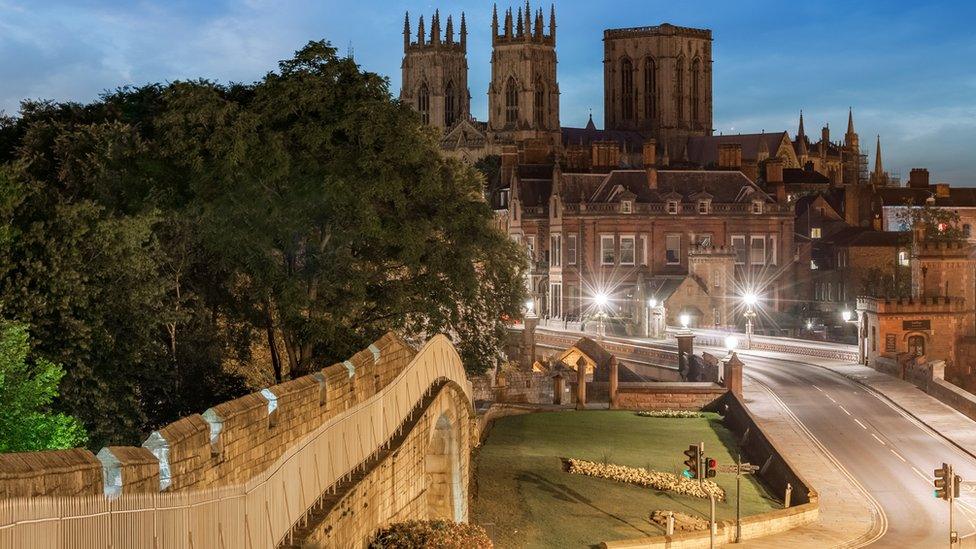
Many of York's city centre streets are narrow and pedestrianised
The council acknowledged some of the 7,500 blue badge holders in York will no longer be able to access the footstreets.
However it said it was reintroducing blue badge access and parking, external to non-pedestrianised areas in the city centre.
Councillors have also approved a series of mitigation measures, including dropped kerbs, the employment of an access officer and a feasibility study into an accessible shuttle service.
Labour councillor and blue badge holder Katie Lomas said: "This means me viewing the city centre as an obstacle I cannot face much of the time."
Alison Hume, from York Accessibility Action, has an adult son with autism and complex disabilities and said a quarter of all families in the city had disabled relatives or were affected by temporary physical limitations.
"The council are not listening to us when we tell them about the misery inflicted on disabled residents and their families by the draconian footstreet closures," she said.
She said the legal challenge felt "very David and Goliath" but the decision to exclude disabled people was devastating.
Helen Jones, of York Disability Rights Forum, attended the council meeting and said the vote had sent "a very, very strong message to York's disability community".
"Whether you have a blue badge or not - we don't matter," she said.
"That we are not worth the council's consideration and that we are second-class citizens."
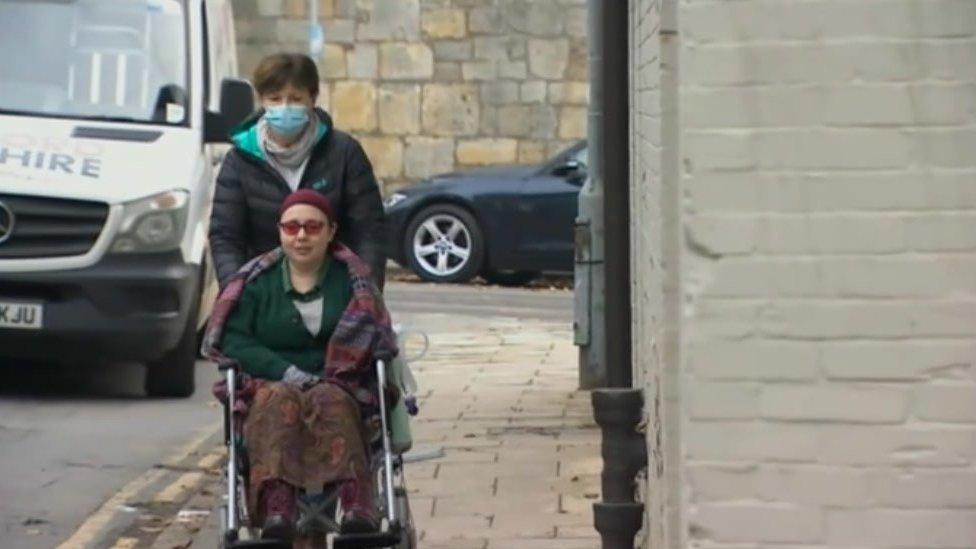
Helen Jones, of York Disability Rights Forum, people with disabilities had been left out
Labour councillor Rachel Melly, shadow executive member for transport, said she was "shocked and appalled" at the decision.
The council said counter-terrorism measures were requested by the police to mitigate against a vehicle attack and it had been advised by experts that the footstreet area was the most "effective perimeter" for those measures.
City police commander Supt Mark Khan said he had pushed for hostile vehicle mitigation measures for ten years, and believed an event such as the Christmas market could attract a terrorist hoping "to kill as many people as possible" if measures were not in place.
"It's not so much if a terrorist attack happens but when," he said.
Liberal Democrat councillor Andrew Waller, a member of the council executive, said: "Risk remains high and it is urgent that we install the permanent measures."
His colleague Darryl Smalley said the council faced "extremely difficult decisions," which they were not taking lightly.
"We must be guided by the advice before us," he said.
The council said before the pandemic blue badge holders only had access to a small part of the pedestrianised zone between 10:30 and 17:00.
Under the new rules, the footstreet hours will run from 10.30 to 20:00 until the end of the year, to coincide with the Christmas markets, reducing to 10.30 to 19:00 from January 2022.

Follow BBC Yorkshire on Facebook, external, Twitter, external and Instagram, external. Send your story ideas to yorkslincs.news@bbc.co.uk, external.
Related topics
- Published16 November 2021

- Published15 November 2021
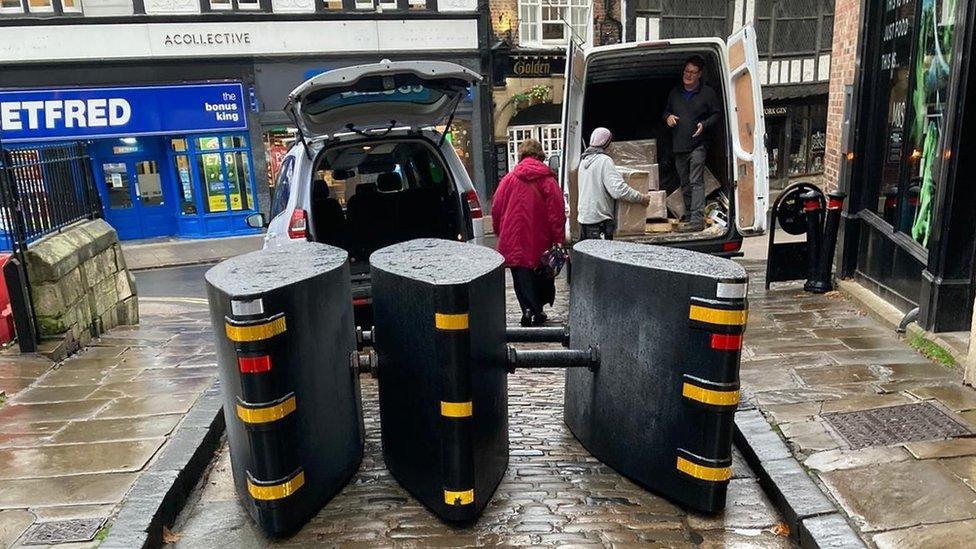
- Published30 November 2020
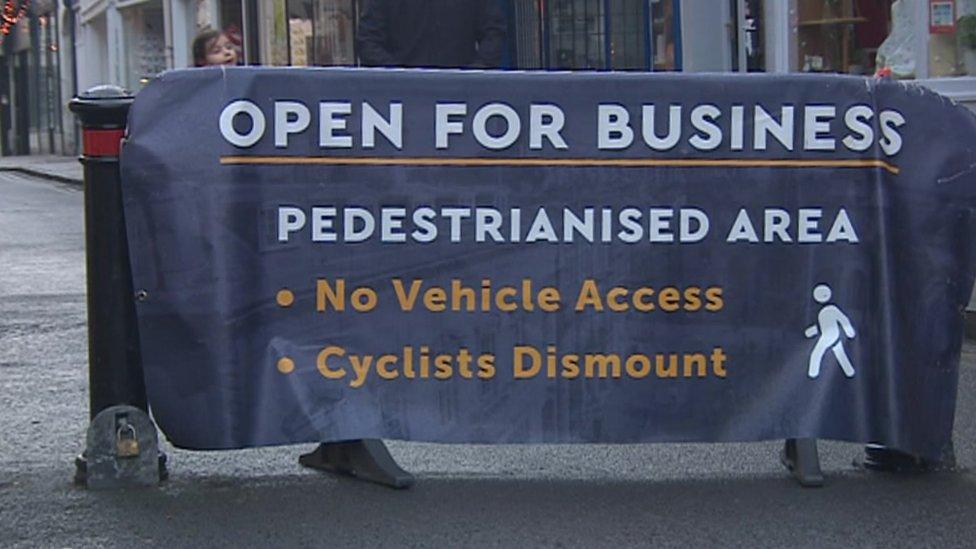
- Published8 November 2021
